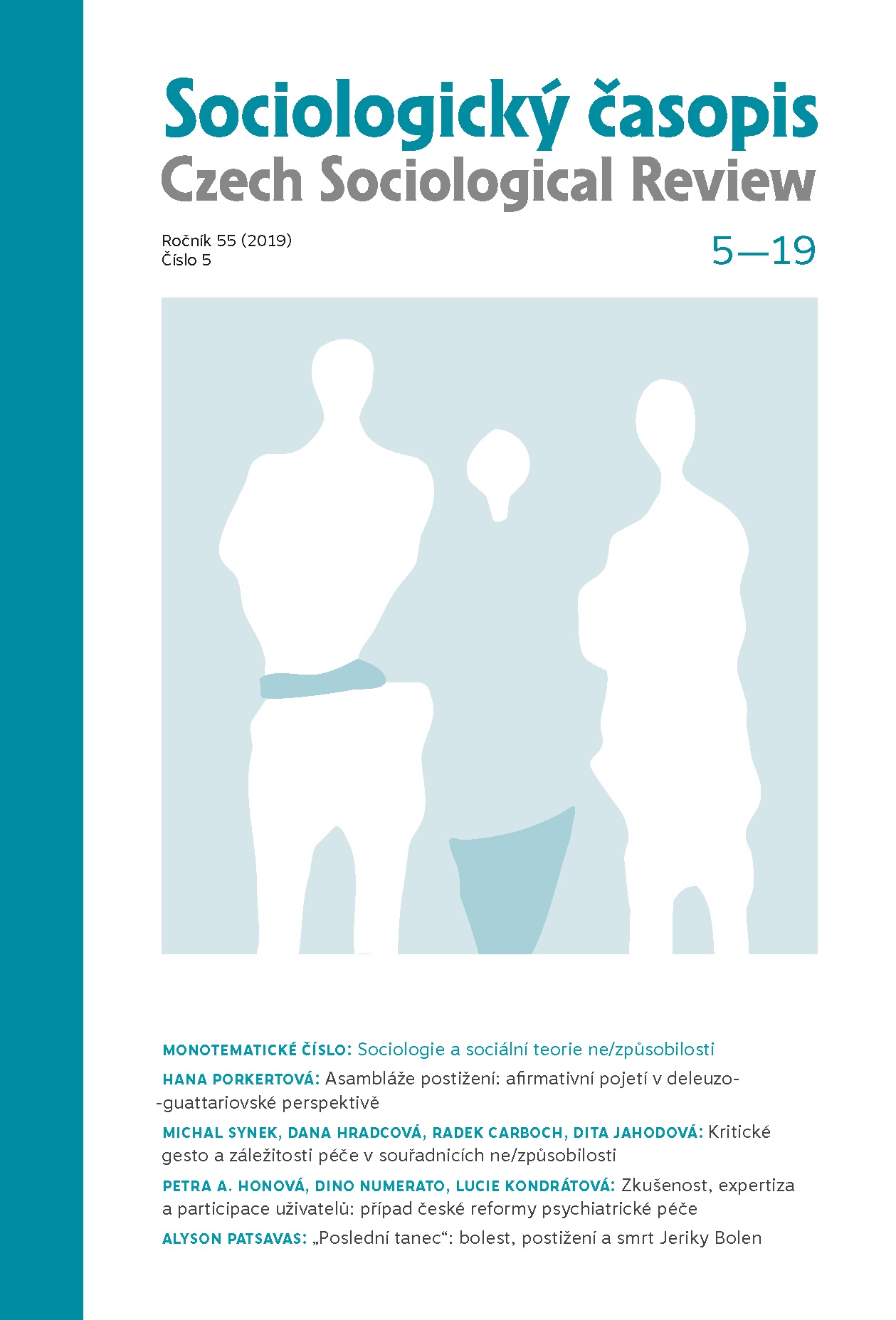Asambláže postižení: afirmativní pojetí v deleuzo-guattariovské perspektivě
The ‘Assemblages’ of Disability: An Affirmative Conception in a Deleuze-Guattarian Perspective
Author(s): Hana PorkertováSubject(s): Social Theory, Health and medicine and law
Published by: AV ČR - Akademie věd České republiky - Sociologický ústav
Keywords: disability; assemblage; Deleuze-Guattarian philosophy; dis/continuity; visual impairment
Summary/Abstract: The article discusses the potential of Deleuze-Guattarian philosophy for studying disability. It draws on empirical research comprising interviews with and ethnographic observations regarding the visually impaired people, in which the concept of assemblage is used as a sociological tool to analyse the continuity and discontinuity of disability. An assemblage is made up of heterogenic, rhizomatic, and often unpredictable connections, both organic and inorganic and linguistic and material, that continuously transform each other. An assemblage is never finished but is always complete, which gives rise to the question of the relationship between a whole and its parts, thus challenging the perception of disability as a lack and making it possible to think of disability in an affirmative sense. Disability can thus be analysed as a dynamic phenomenon that acquires its concrete contours in specific situations and to consider its discursive and material character. Thus, the concept of assemblage captures both the stability and the fluidity of disability and focuses on connections that maintain and decompose it. On the one hand, disability represents hegemonic discourses about health and the body, while on the other hand, it is a breeding ground for subversive processes.
Journal: Sociologický časopis / Czech Sociological Review
- Issue Year: 55/2019
- Issue No: 5
- Page Range: 561-585
- Page Count: 25
- Language: Czech

